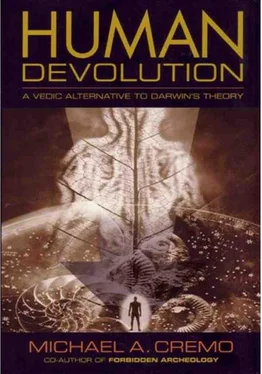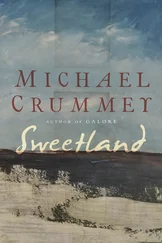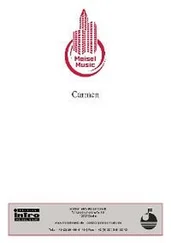Michael Cremo - Human Devolution - A Vedic Alternative To Darwin's Theory
Здесь есть возможность читать онлайн «Michael Cremo - Human Devolution - A Vedic Alternative To Darwin's Theory» весь текст электронной книги совершенно бесплатно (целиком полную версию без сокращений). В некоторых случаях можно слушать аудио, скачать через торрент в формате fb2 и присутствует краткое содержание. Год выпуска: 2003, ISBN: 2003, Издательство: Torchlight Publishing, Жанр: Старинная литература, на английском языке. Описание произведения, (предисловие) а так же отзывы посетителей доступны на портале библиотеки ЛибКат.
- Название:Human Devolution: A Vedic Alternative To Darwin's Theory
- Автор:
- Издательство:Torchlight Publishing
- Жанр:
- Год:2003
- ISBN:9780892133345
- Рейтинг книги:4 / 5. Голосов: 1
-
Избранное:Добавить в избранное
- Отзывы:
-
Ваша оценка:
- 80
- 1
- 2
- 3
- 4
- 5
Human Devolution: A Vedic Alternative To Darwin's Theory: краткое содержание, описание и аннотация
Предлагаем к чтению аннотацию, описание, краткое содержание или предисловие (зависит от того, что написал сам автор книги «Human Devolution: A Vedic Alternative To Darwin's Theory»). Если вы не нашли необходимую информацию о книге — напишите в комментариях, мы постараемся отыскать её.
Human Devolution: A Vedic Alternative To Darwin's Theory — читать онлайн бесплатно полную книгу (весь текст) целиком
Ниже представлен текст книги, разбитый по страницам. Система сохранения места последней прочитанной страницы, позволяет с удобством читать онлайн бесплатно книгу «Human Devolution: A Vedic Alternative To Darwin's Theory», без необходимости каждый раз заново искать на чём Вы остановились. Поставьте закладку, и сможете в любой момент перейти на страницу, на которой закончили чтение.
Интервал:
Закладка:
In March 2000, I was invited to speak on Forbidden archeology in a lecture series of the Royal Institution of Great Britain, one of the world’s oldest scientific societies. The lecture was given in the Royal Institution’s headquarters in London. Later that year, in September, I presented a paper titled “The Discoveries of Carlos Ribeiro: A Controversial Episode in Nineteenth-Century European Archeology” at the European Association of Archaeologists Sixth Annual Meeting, in Lisbon, Portugal. In November 2000, I lectured on Forbidden archeology at universities in Hungary.
In June 2001, I lectured on Forbidden archeology at the Simon Fraser University in Vancouver, Canada. In September 2001, my paper “The Discoveries of Belgian Geologist Aimé Louis Rutot at Boncelles, Belgium: An Archeological Controversy from the Early Twentieth Century” was accepted for presentation at the XXIVth Congress of the International Union of Prehistoric and Protohistoric Sciences, held in September of that year in Liège, Belgium. In October 2001, I lectured on Forbidden archeology at Pennsylvania State University and Cornell University. In November 2001, I lectured on Forbidden archeology at the Charles University in Prague, in the Czech Republic, at the invitation of the faculty of philosophy.
In January and February 2002, I toured South India, with lectures at universities and other scientific and cultural institutions, such as the Bharatiya Vidya Bhavan in Mumbai (Bombay) and the Ana University in Chennai (Madras). In April and May 2002, I toured the Ukraine and Slovenia, speaking at universities and scientific institutions such as the Kiev Mogilanskaya Academy and the Institute of Archeology of the Ukrainian Academy of Sciences. I also spoke to archeologists in the archeology department of the Dnepropetrovsk Historical Museum. In November and December I returned to the Ukraine for another series of such talks at universities and historical museums in Odessa, Kharkov, and Lvov. As I am writing this introduction in December 2002, I am preparing a paper on the California gold mine discoveries reported by geologist Josiah D. Whitney for the fifth World Archaeological Congress, to be held in Washington, D.C., in June 2003. I am with archeologist Ana Martins of Portugal co-organizer of a section on history of archeology for the Congress.
In terms of ordinary scholarship, this modest collection of conference presentations, publications, and university lectures is not overly impressive. But given the explicit Vedic anti-evolutionary content of the papers and lectures they are, I believe, historically significant. They show that scientists and historians of science, whether or not they agree with the conclusions expressed in the presentations, now consider such presentations part of the active discourse in their disciplines. In that sense, they demonstrate that Forbidden archeology accomplished one of its major purposes—sparking a discussion within the world of science about anomalous evidence for extreme human antiquity and a Vedic perspective on human origins. The presentations show that fundamentalist Darwinists within the world of science have not been as successful as they would like to be in maintaining a boundary between science and what they call religiously motivated “pseudoscience,” to use their favored, and charmingly cranky, terminology. I personally do not accept the increasingly irrelevant distinctions some try to make between scientific and religious ways of knowing. I see myself as neither scientist nor religionist, but as a human being prepared to use various ways of knowing in the pursuit of truth. Forbidden archeology was widely reviewed in the professional journals of archeology, anthropology, and history of science. I included the complete texts of these reviews, along with related correspondence, in my book Forbidden archeology’s Impact, which attracted its own set of academic reviews. For example, Simon Locke wrote in Public understanding of Science (1999 v. 8, no. 1, pp. 68–69), “Social constructivism, reflexivity, and all that is postmodern have inspired a variety of experiments in new literary forms to enliven the staid old world of the standard academic study. . . . As attempts to document the social process of knowledge production and capture some of its reflexivity, they are both consistent and courageous. So, too, Michael Cremo’s book. The ‘impact’ the book documents is that of Cremo’s earlier work, Forbidden archeology . In this latest book rather than construct his own historical narrative, Cremo opts for the far more interesting strategy of directly reproducing much of the source material from which any such narrative would be constructed. The result is a multi-faceted textual kaleidoscope, in which a wide range of the many discourses surrounding contemporary science reflect and refract each other in fascinating array . . . Cremo has provided here a resource of considerable richness and value to analysts of public understanding [of science]. . . . It should also make a useful teaching resource as one of the best-documented case studies of ‘science wars,’ and raising a wide range of issues covering aspects of ‘knowledge transfer’ in a manner sure to be provocative in the classroom.”
The positive or negative nature of the Forbidden archeology reviews in academic journals is not as significant as the very fact that the reviews appeared at all. They represent another form of acknowledgement that the Vedic critique of the Darwinian theory of human evolution represented by Forbidden archeology is a genuine part of contemporary science and scholarship. As Kenneth Feder said in his Geoarchaeology review (pp. 337–338), “The book itself represents something perhaps not seen before; we can fairly call it ‘Krishna creationism’ with no disrespect intended . . . While decidedly antievolutionary in perspective, this work is not the ordinary variety of antievolutionism in form, content, or style. In distinction to the usual brand of such writing, the authors use original sources and the book is well written. Further, the overall tone of the work is superior to that exhibited in ordinary creationist literature.”
Jo Wodak and David Oldroyd published a lengthy review article about Forbidden archeology in Social Studies of Science (1996 v. 26, pp.
192–213). In their article, titled “Vedic Creationism: A Further Twist to the Evolution Debate,” they asked (p. 207),“So has Forbidden archeology made any contribution at all to the literature on palaeoanthropology?” They concluded, “Our answer is a guarded ‘yes’, for two reasons.” First, “the historical material . . . has not been scrutinized in such detail before,” and, second, the book does “raise a central problematic regarding the lack of certainty in scientific ‘truth’ claims.”They also commented (p. 198), “It must be acknowledged that Forbidden archeology brings to attention many interesting issues that have not received much consideration from historians; and the authors’ detailed examination of the early literature is certainly stimulating and raises questions of considerable interest, both historically and from the perspective of practitioners of SSK [sociology of scientific knowledge]. Indeed, they appear to have gone into some historical matters more deeply than any other writers of whom we have knowledge.”
In the first few pages of their article (pp. 192–195), Wodak and Oldroyd gave extensive background information on: The International Society for Krishna Consciousness, of which the authors of Forbidden archeology are members (“a modern variant of the Bhakti sects that have dominated Hindu religious life over the last one and a half millennia”); the teachings of the movement’s founder, Bhaktivedanta Swami Prabhupada (“for Prabhupada, science gives no adequate account of the origin of the universe or of life”); the Bhaktivedanta Institute (they comment on “the boldness of its intellectual programme”); and Vedic chronology (“partial dissolutions, called pralaya, supposedly take place every 4.32 billion years, bringing catastrophes in which whole groups of living forms can disappear”). Wodak and Oldroyd also make many references to the Rg veda, vedanta, the Puranas, the atma, yoga, and karma.
Читать дальшеИнтервал:
Закладка:
Похожие книги на «Human Devolution: A Vedic Alternative To Darwin's Theory»
Представляем Вашему вниманию похожие книги на «Human Devolution: A Vedic Alternative To Darwin's Theory» списком для выбора. Мы отобрали схожую по названию и смыслу литературу в надежде предоставить читателям больше вариантов отыскать новые, интересные, ещё непрочитанные произведения.
Обсуждение, отзывы о книге «Human Devolution: A Vedic Alternative To Darwin's Theory» и просто собственные мнения читателей. Оставьте ваши комментарии, напишите, что Вы думаете о произведении, его смысле или главных героях. Укажите что конкретно понравилось, а что нет, и почему Вы так считаете.












